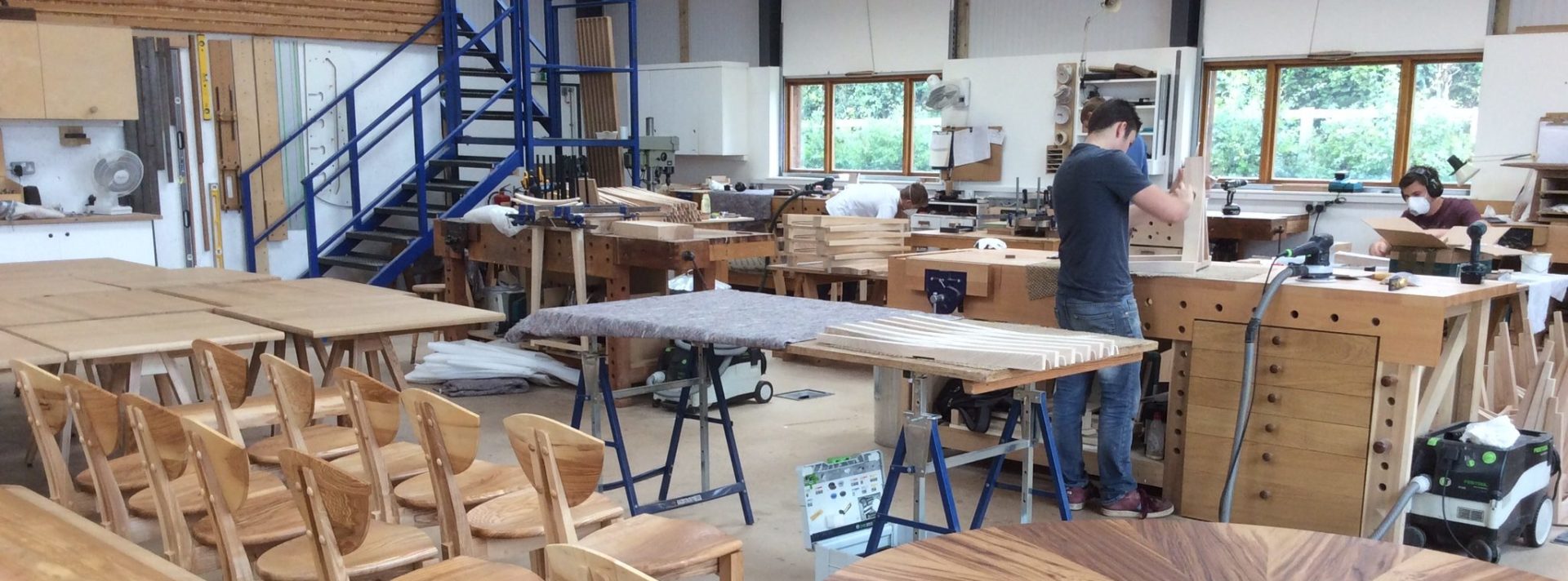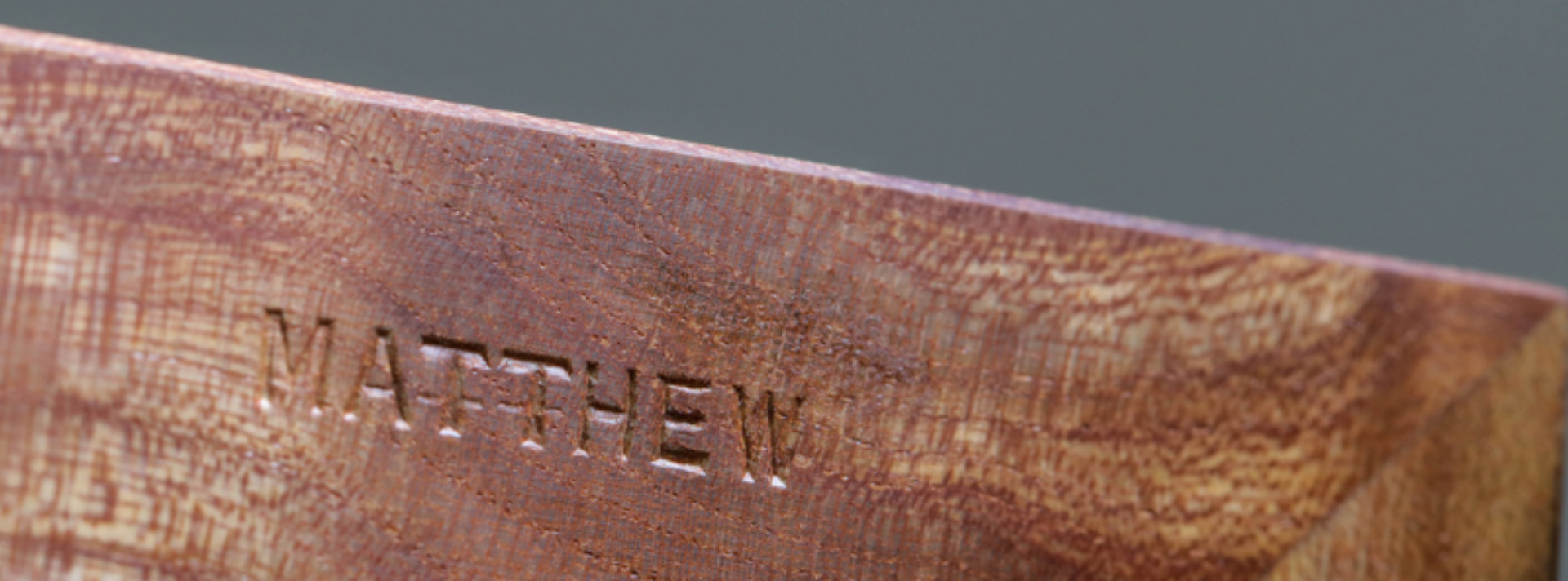MATTHEW BURT HQ
WORKSHOP
We have apprenticed makers since 1985 and all of them undertake six years’ of training, during which they are steeped in our default position of both designing and making for posterity. They emerge as sensitive, knowledgeable, excellent and consummate makers with as keen an eye for form and function as you will find anywhere. They are at the top of their game.
We have forged practical relationships with a broad range of like-minded and complimentary artisans, manufacturers and suppliers working in stone, glass, metal, leather, lettering and light with whom we work collaboratively when the job requires.
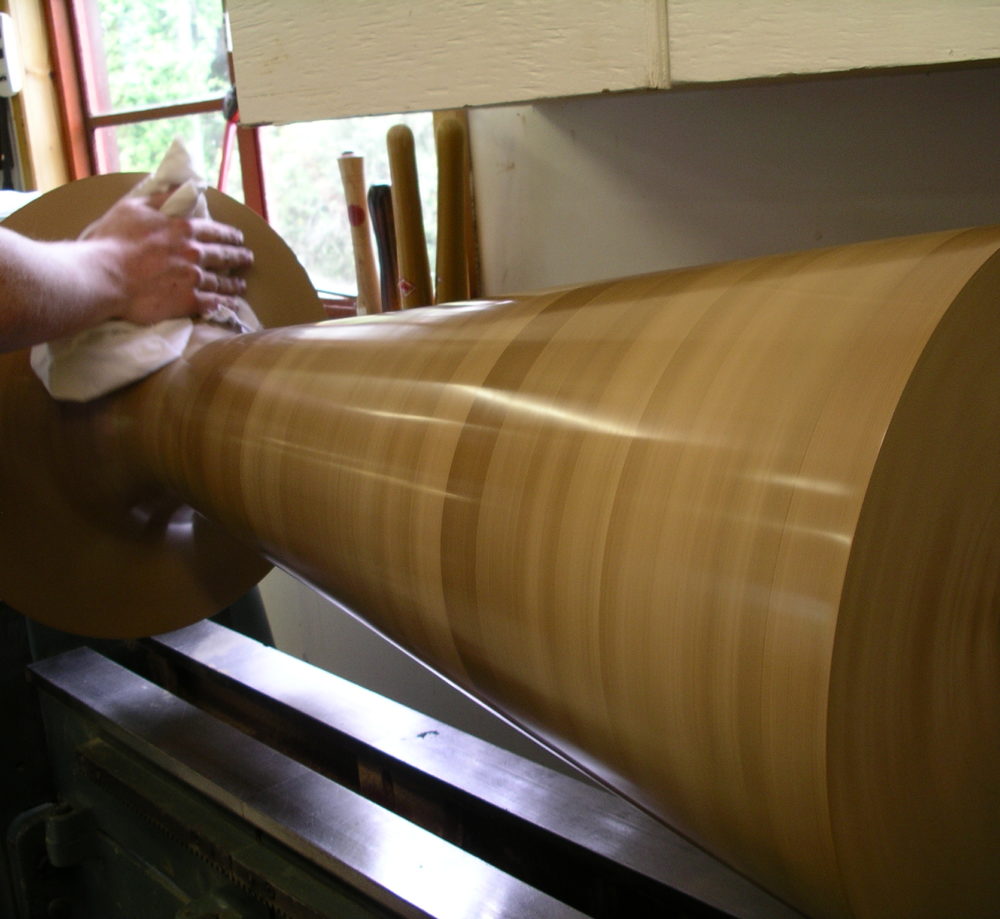
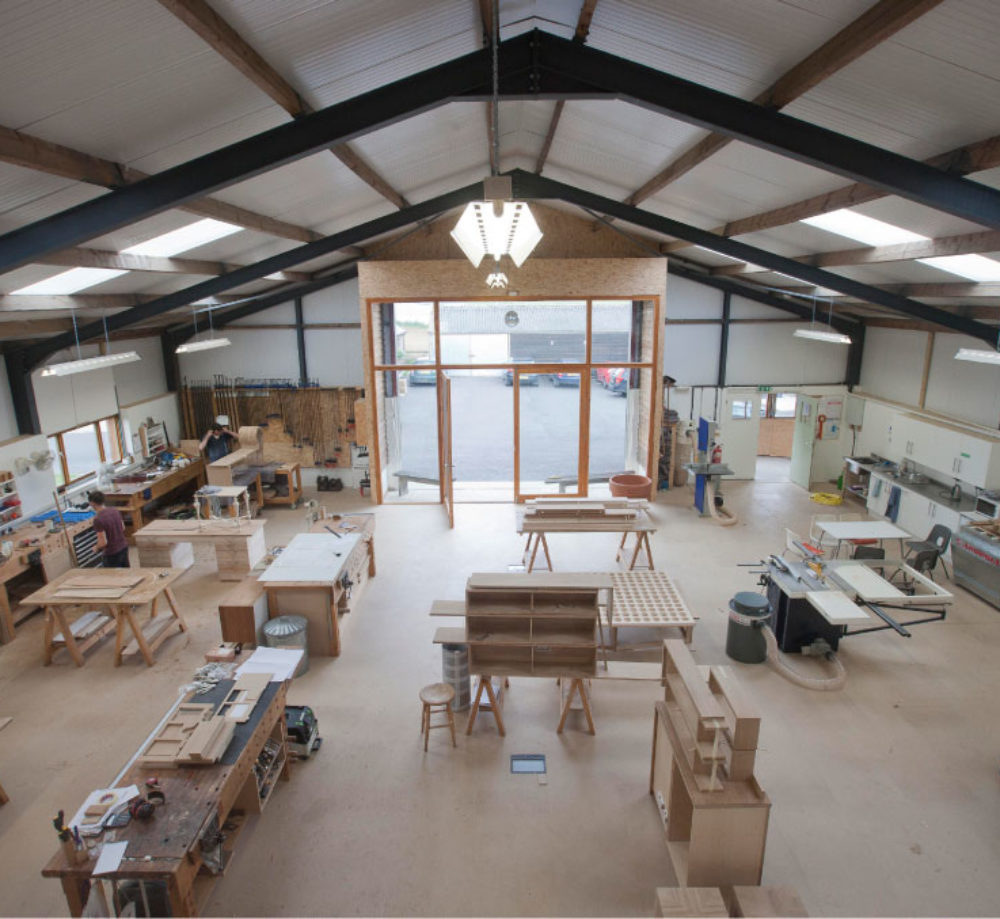
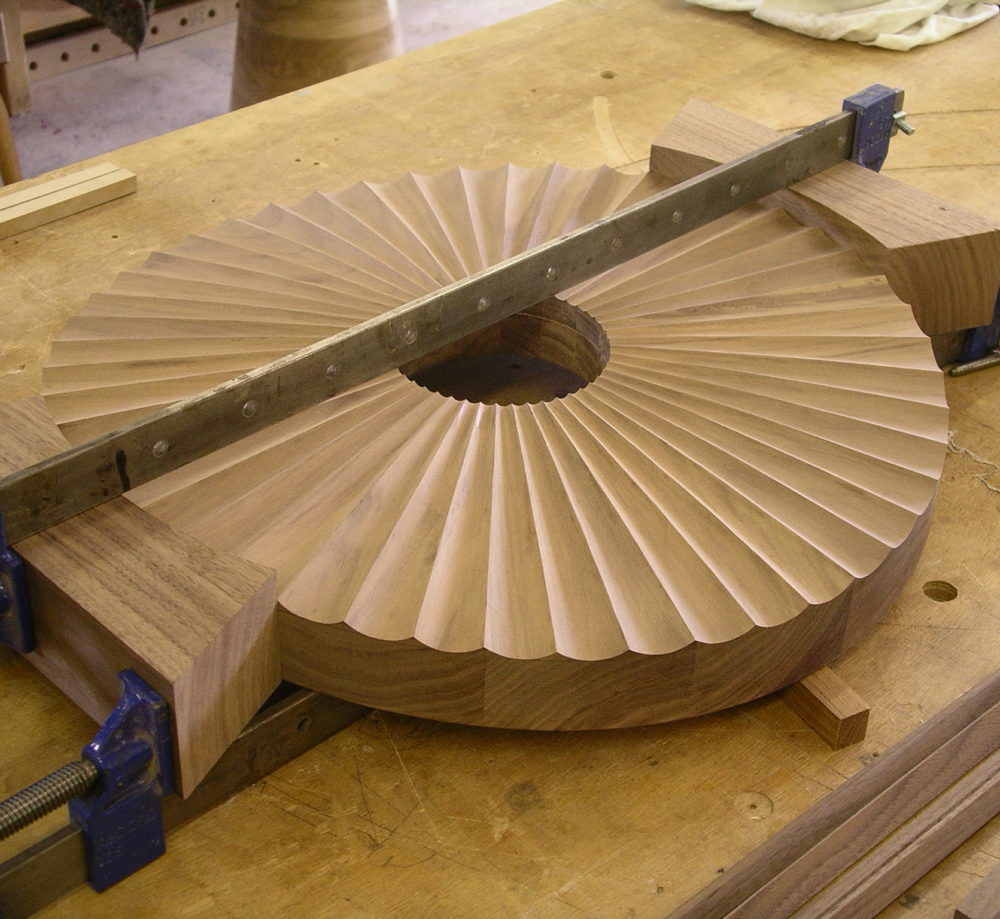
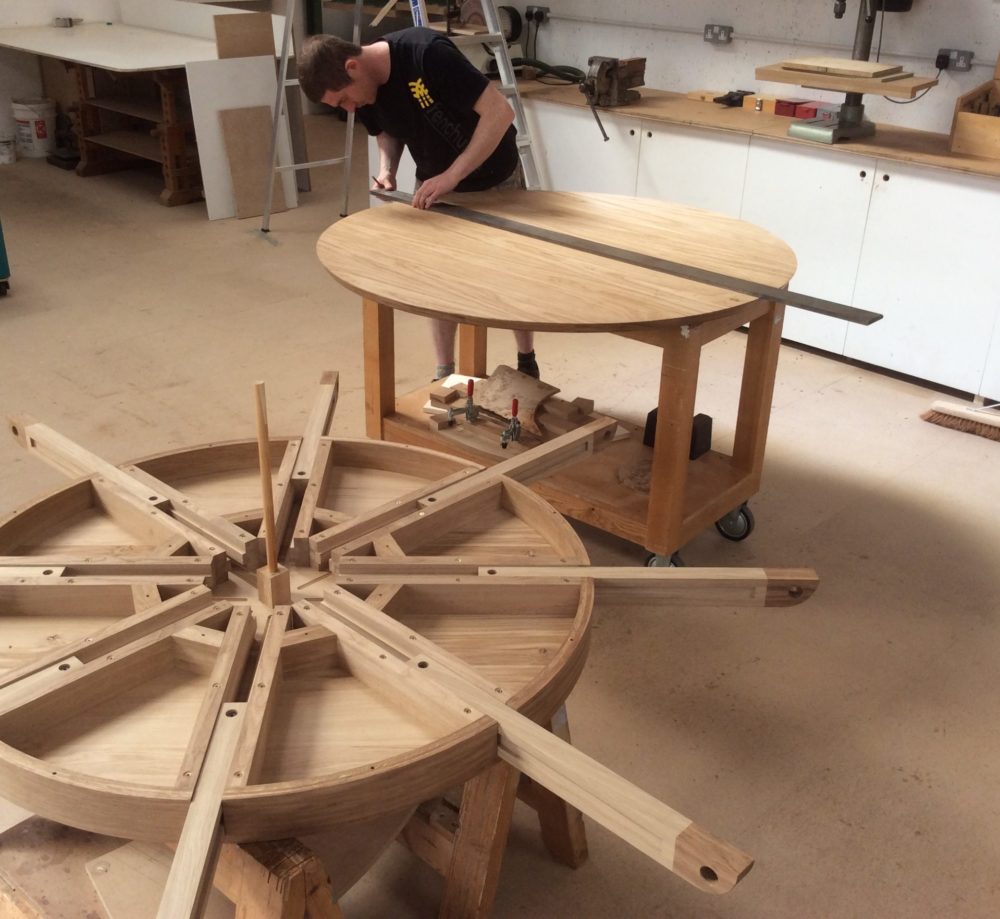
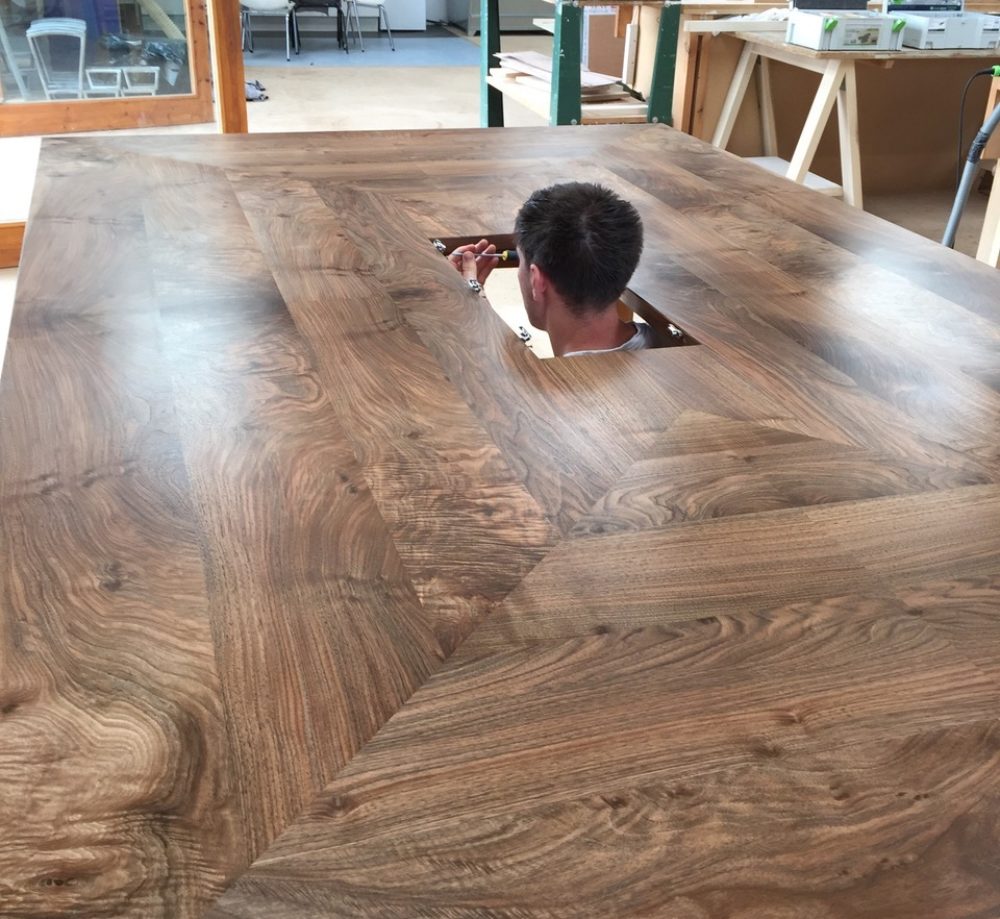
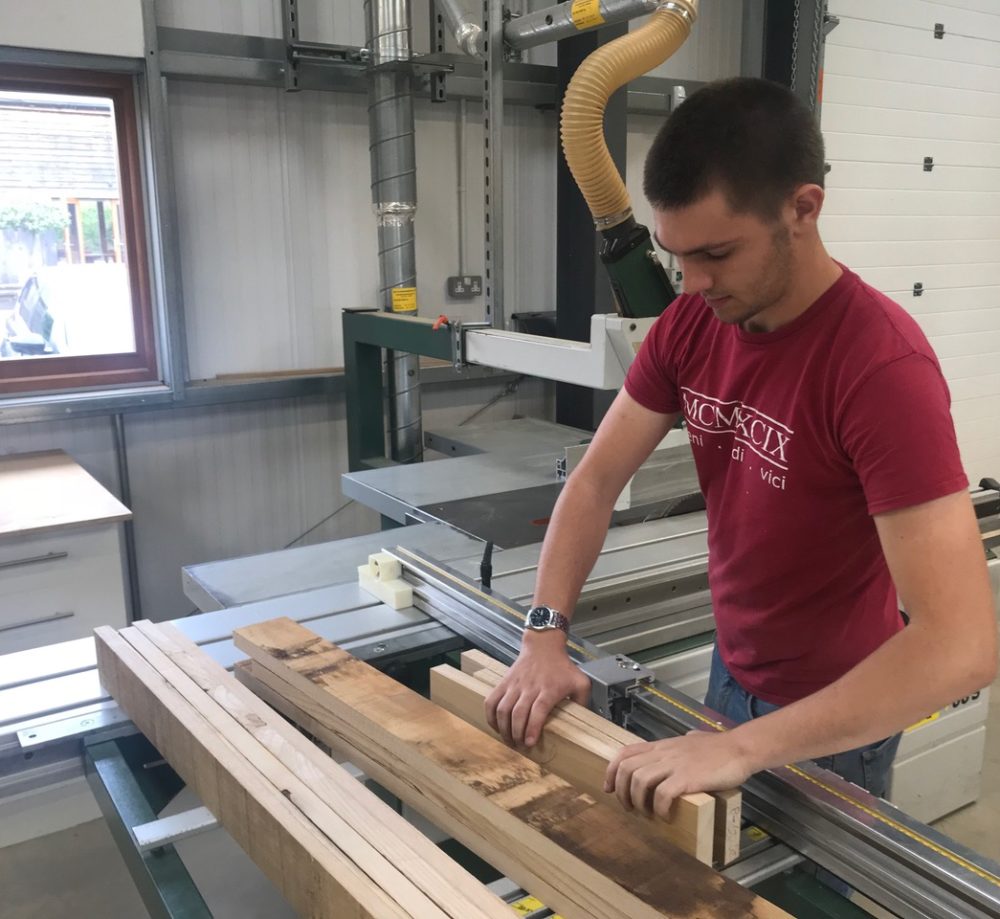
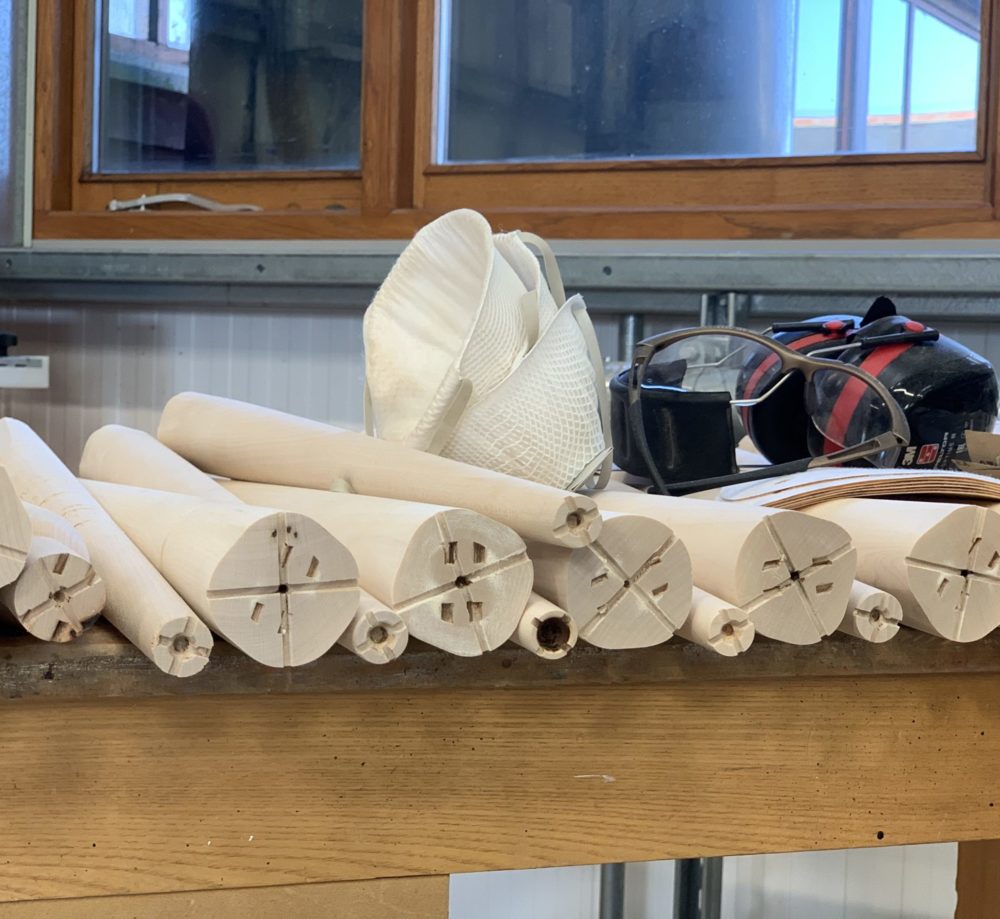
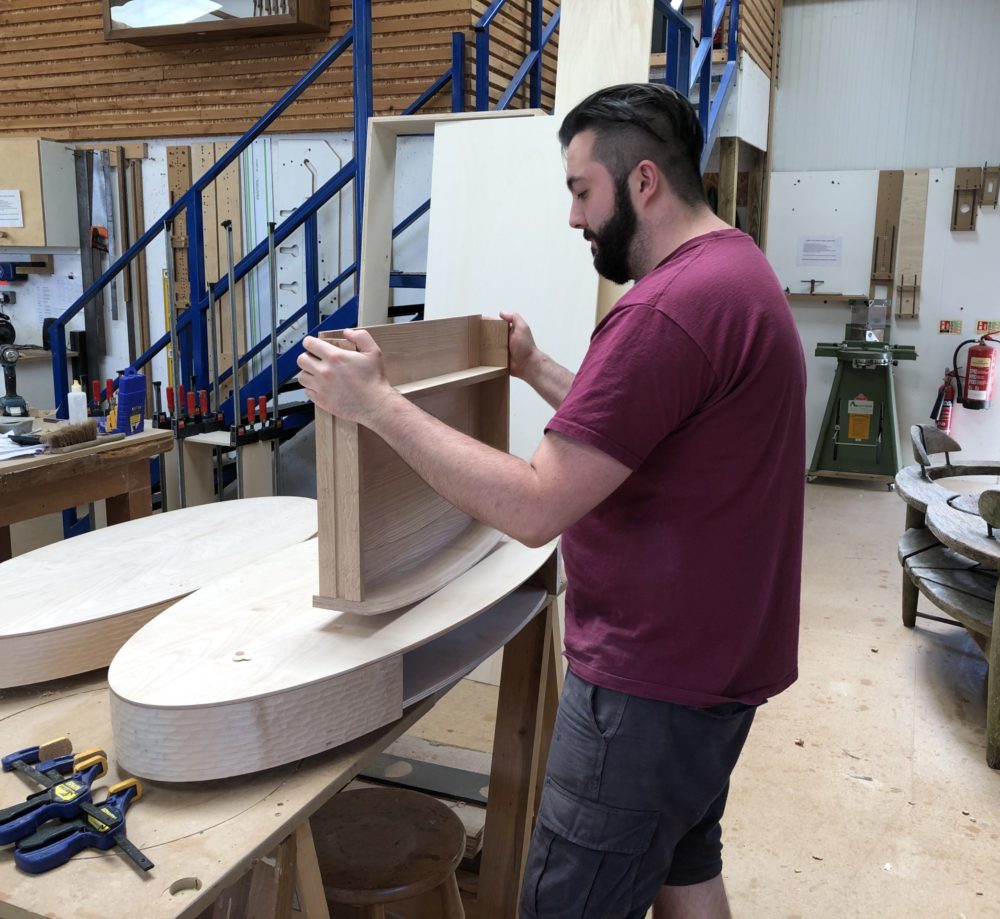

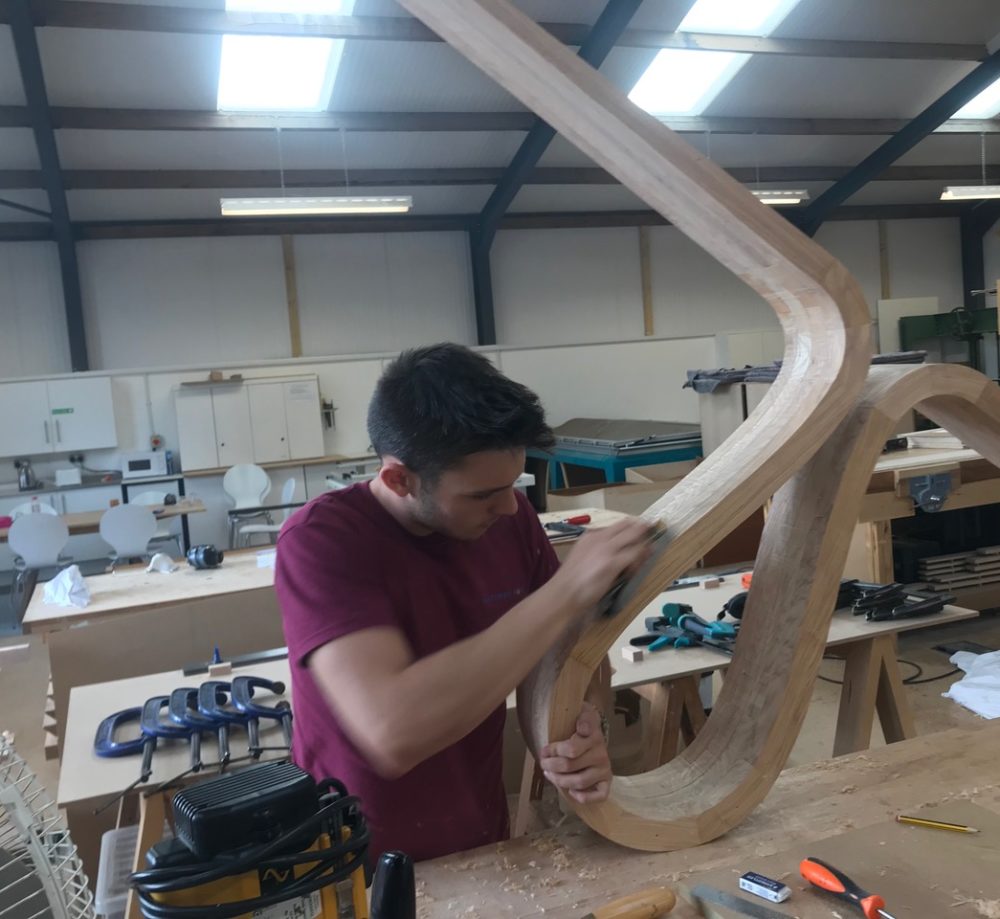
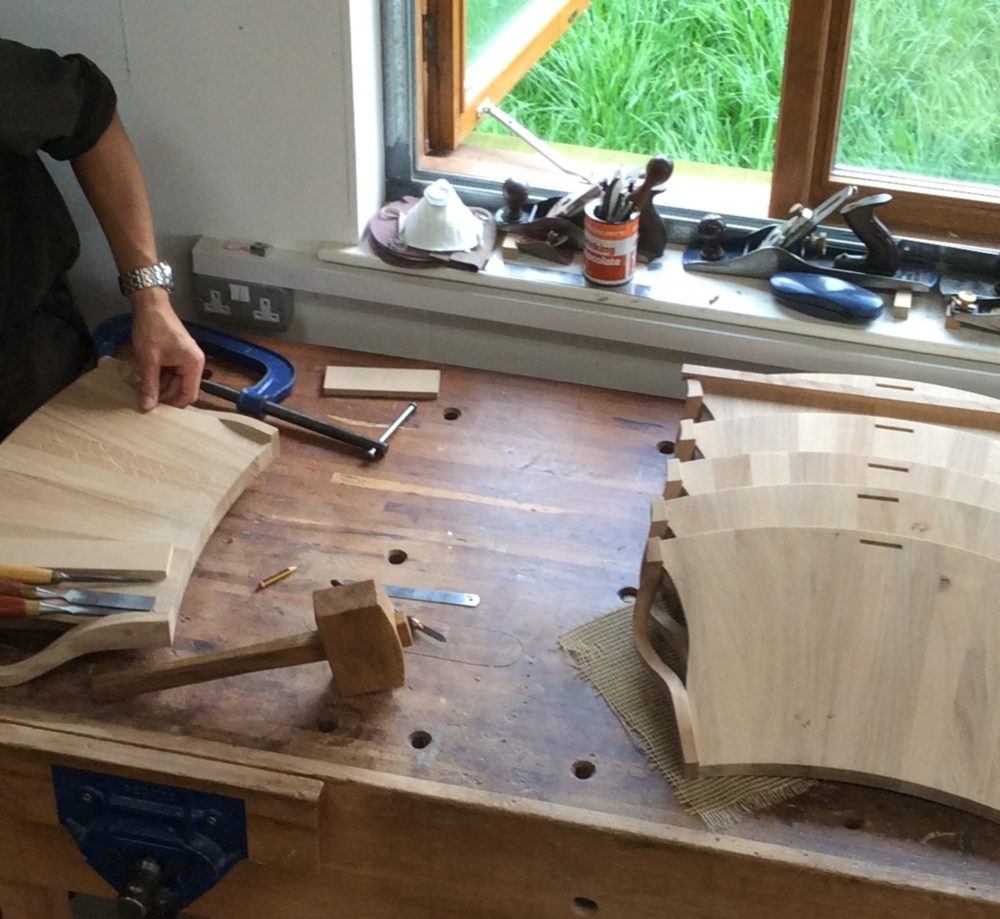
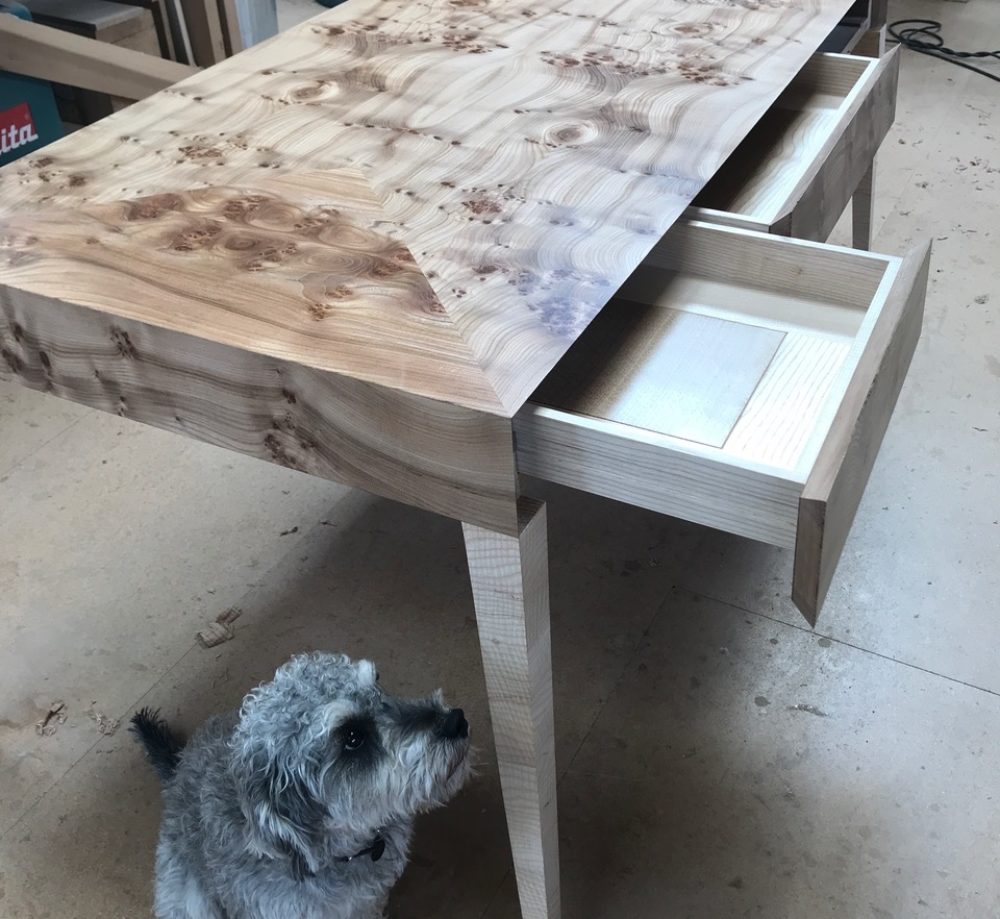

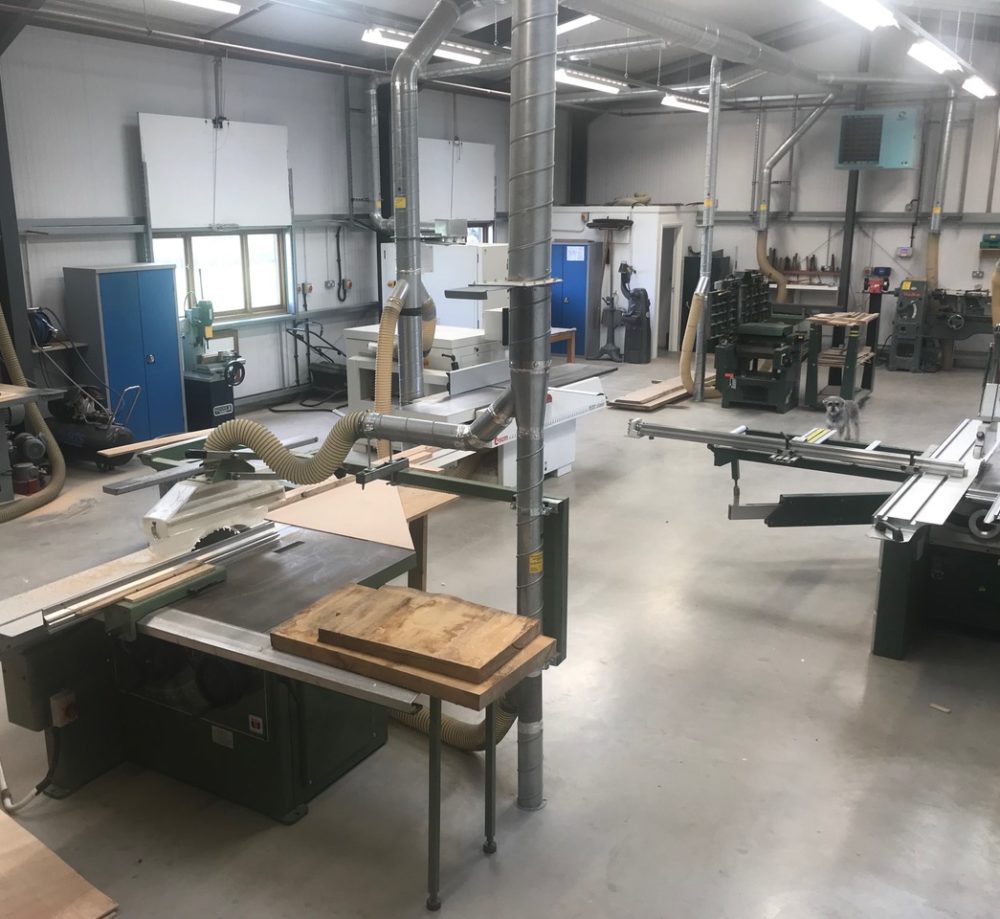
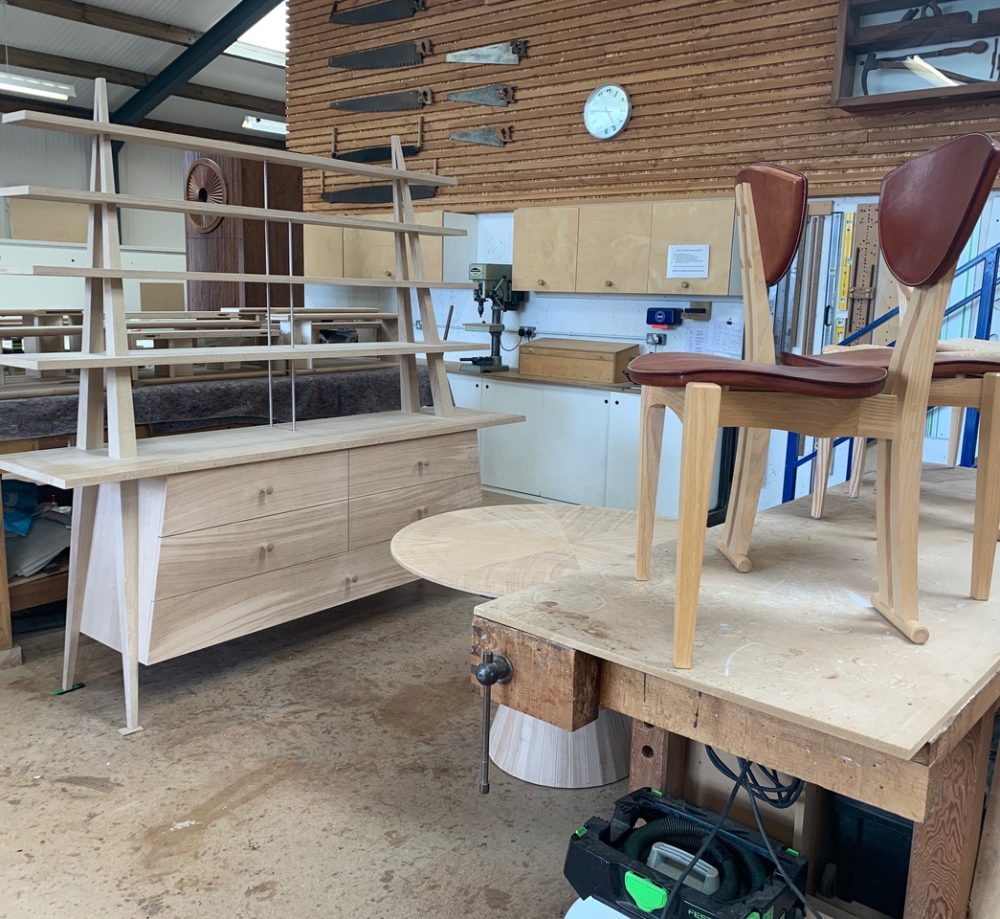
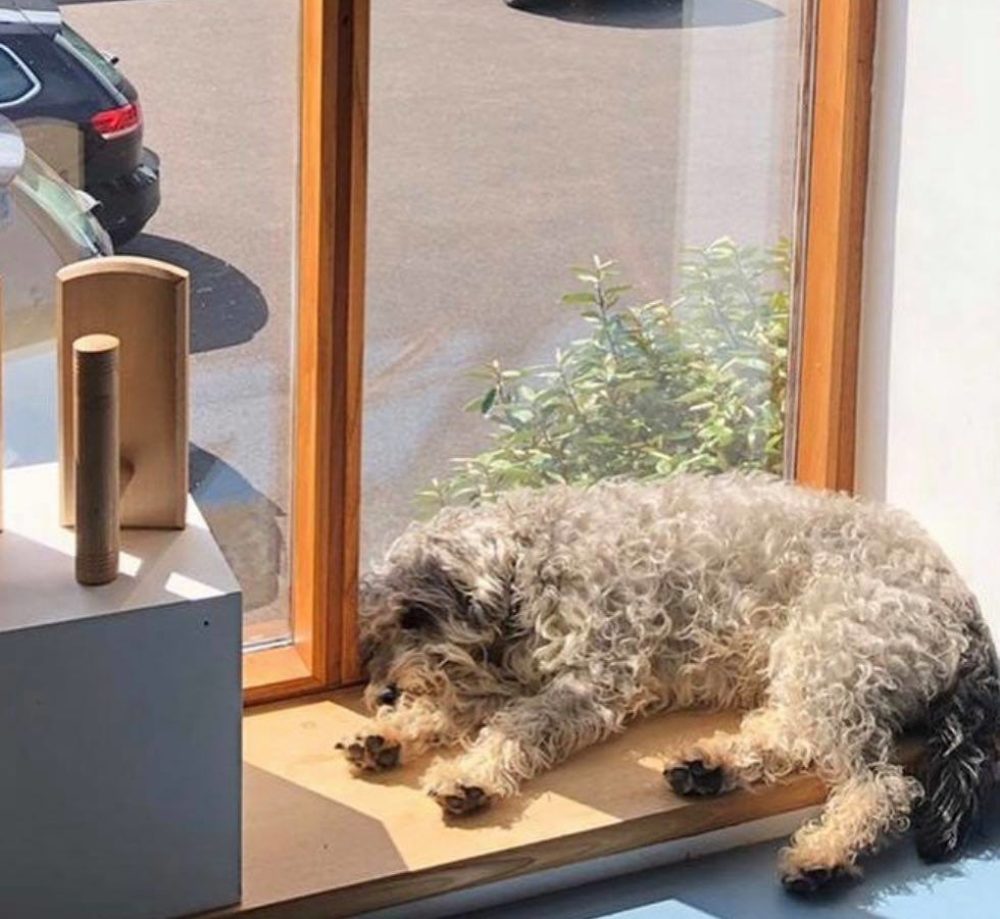
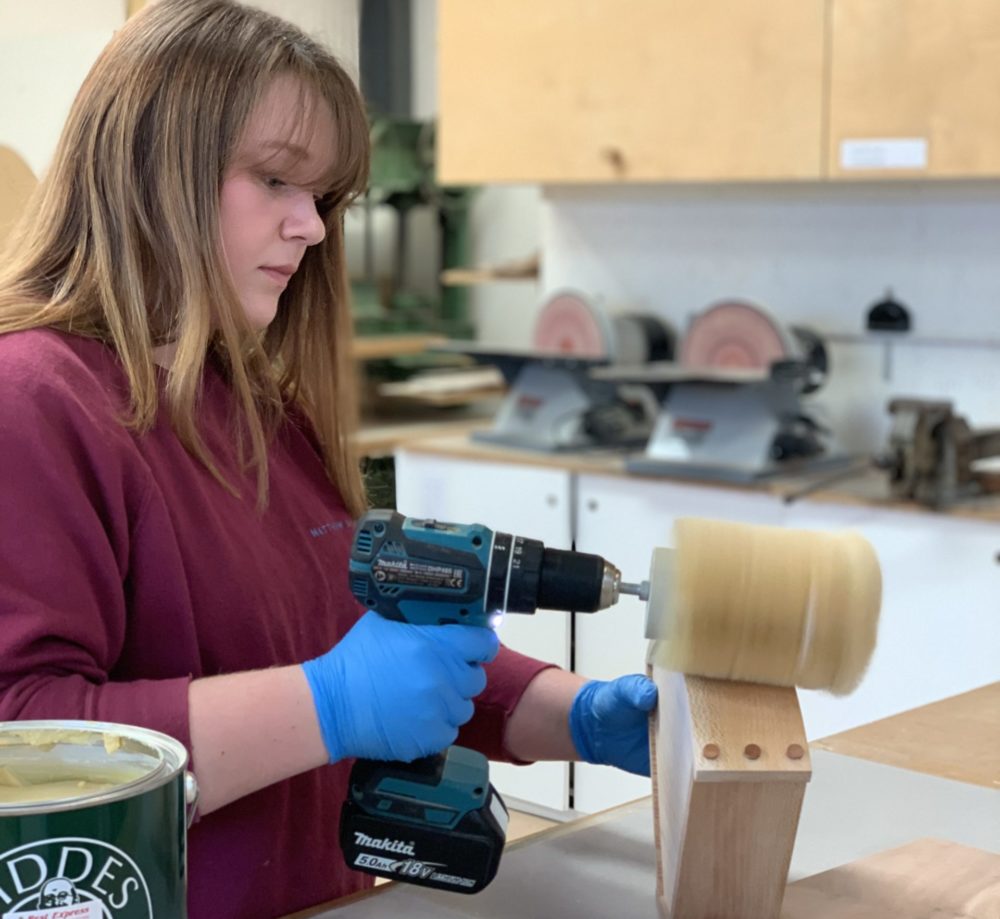
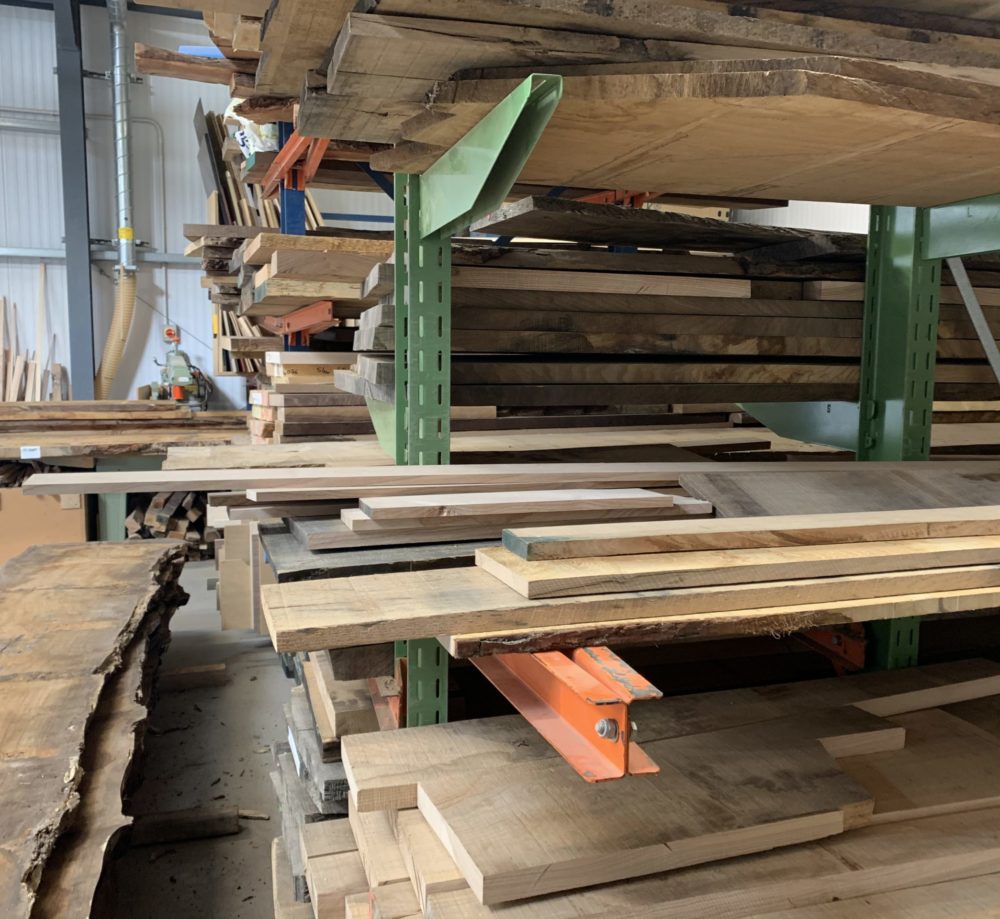
When I started out on my furniture designing and making journey I would spend hours rifling through the boxes of a second-hand tool shop on the Cowley Road in Oxford. There I would find the elegant chisels of a previous era, made from pre-war British steel, which kept its edge, was easy to sharpen and streets ahead of its modern equivalent. The handles were made from boxwood: hard, durable, sensually tactile and beautiful. Most handles were stamped with the names of previous owners, a lineage of ghost users. I was happy to add my own and had a name stamp made up. I got into the habit, when I started my own workshop, that when pleased with a piece, I’d use this stamp to mark my approval and to lay claim to its design. Nowadays we stamp all pieces leaving the workshop and we let the new owner discover it – it’s there somewhere.
Wood is strong, resilient, pliant, beautiful and there for us as a constant and comfortable companion in our evolution. We design our pieces to withstand the vagaries of fad and fashion and we make them with consummate craftsmanship, an understanding of their material and with posterity in mind. A great combination that enables them to give excellent service for centuries. They do however appreciate a little extra care.
Timber does not like excessive heat or moisture. It is totally non-judgemental but is not necessarily improved by adornment with felt-tipped pens, inks or other indelible substances. To this end we protect it in one of three ways before sending it out to you:
WAX: We use this on pieces that are occasionally used. It is the very best of finishes and will eventually lead to the patina so cherished in some very old pieces. It is not totally heat or moisture proof and will react with grey blooms to damp glasses etc. These can be very easily removed with a quick re-wax of the area. Wax is probably not the finish for a kitchen or dining table. We normally use it on side tables, chests of drawers and the like, for clients who like a bit of interaction with their piece. We do provide care boxes and maintenance notes with our waxed pieces.
OIL: Another lovely, natural finish that offers reasonable protection but again requires a little customer interaction, care and occasional re-application. It does not like other oils such as soft cheese or errant olives etc. These will leave darkened patches. We use various hard-wax oil finishes and they are lovely on most pieces but only for the intrepid in the kitchen and dining room. It is a work-a-day finish and only for those who can accept the odd stain and blemish. We provide care boxes and maintenance notes with our oiled pieces.
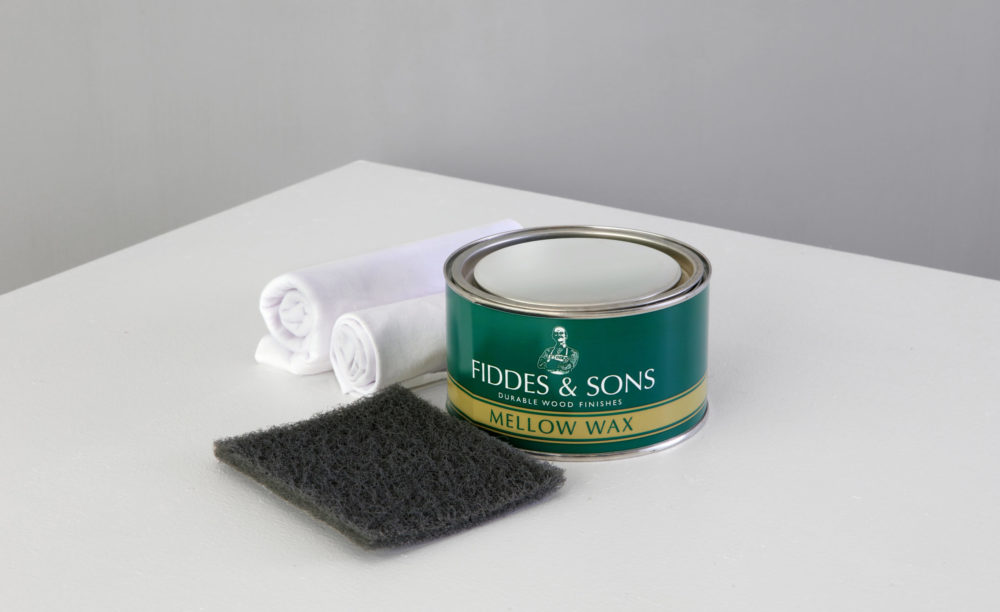
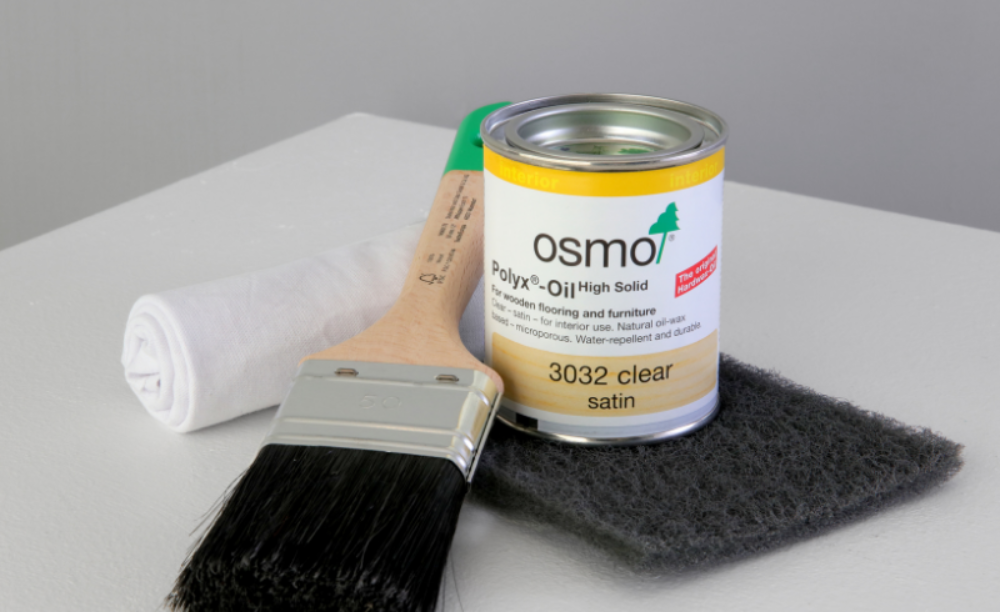
LACQUER: This is the closest we have to a bomb-proof finish, offering protection against heat and water. It is ideal for the wary in the kitchen and dining room or in heavy use or handling situations, such as trays, every-day tables and the like. It is not a natural finish, although it can look like one. It just requires a rub down with a damp cloth after use, then a dry cloth, to give excellent protection.
FINALLY: We are always at hand. We will not abandon you. We will not tell you fibs about how you can ‘feed’ your piece. We will give honest answers about it and its sometimes unpredictable qualities. It will sometimes complain if placed too near to radiators or in large, south-facing windows. It will swell if left in continually damp conditions. Some of you like knots which others see as defects. We select and season it very carefully and if we include knots we do so in an open and celebratory manner.

